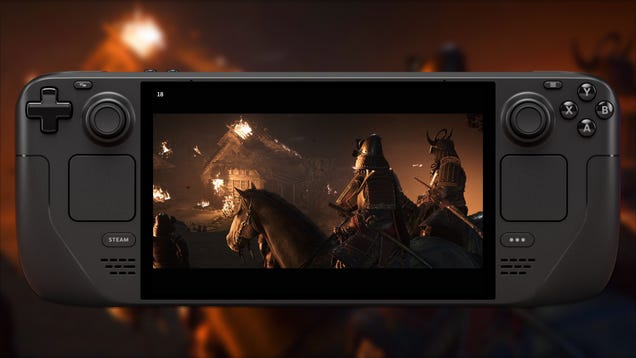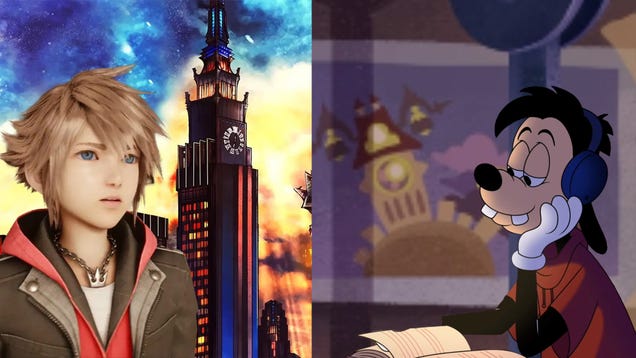
Sweet Tooth Season 3 Review
The third and final season of Sweet Tooth is now streaming on Netflix.
Netflix’s post-apocalyptic fairy tale Sweet Tooth has always valued the journey over the destination. The loose adaptation of Jeff Lemire’s comic series is at its best as a travel show following the young human-deer hybrid Gus (Christian Convery) across the Western United States in search of his mother (and maybe a cure for the disease that has wiped out most of humanity). Unfortunately, its third and final season gets lost introducing new characters and mythology, killing time with monologues and bland action that makes the road to the series’ beautiful and satisfying finale too arduous.
Season 3 makes some strong additions to the Sweet Tooth formula of Gus, his friends, and protectors roaming a ruined world, where they meet other people with their own complicated stories and strategies for survival. The core generational conflict between the last surviving humans and human-animal hybrids is driven home with a stop at a casino where a group of cantankerous seniors horde resources and Gus learns he can’t rely on his luck or charm to solve every problem. Another sweet episode uses a family’s fear of having a hybrid child to nod to the ways some parents push their kids towards conformity in the name of protecting them.
These parables aren’t subtle, and as earnest episodic tales they never overstay their welcome. Unfortunately, Season 3 also strays from its core characters for too long, introducing an entirely new ensemble that, despite hogging screen time, never really gets fleshed out. Much of Sweet Tooth has revolved around Gus’ innocence and its power to bring out the best in others: pro football player-turned-hybrid hunter Thomas “Big Man” Jepperd (Nonso Anozie) became Gus’ guardian, while Becky (Stefania LaVie Owen) – who once waged a war to protect hybrids as leader of the Animal Army – began seeking more peaceful solutions. That makes it all the more disappointing to see Cara Gee – who brought so much nuance to her role in The Expanse – and wasted on the role of Siana, the perfectly benevolent leader of an Alaskan research outpost Gus’ mom has apparently been working with.
Nothing about the outpost makes sense. It supposedly avoided contagion due its remoteness, but we see that it’s accessible by both plane and ship. There’s no explanation for how Siana wound up in charge, or why her adorably mischievous daughter – a half-arctic fox hybrid named Nuka (Ayazhan Dalabayeva) – is the only kid around. I couldn’t remember the names of any of the other new characters after eight episodes, and certainly wasn’t invested in their incredibly goofy fight scenes involving harpoons and sporting equipment. Becky and her sister Wendy (Naledi Murray) wind up largely shunted into this plot, which is a disservice to the characters. They deserve more time to shine on their own or alongside Sweet Tooth’s true protagonists.
Jepperd at least has stronger motivations as he seeks to protect Gus from the hybrid killer Dr. Singh (Adeel Akhtar), whose belief that Gus holds the key to his own redemption (and that of humanity) takes on a religious zeal this season. Akhtar brings a disturbing manicness to the role, his eyes blazing behind his glasses as he preaches about his destiny and tries to establish himself as another guardian for the antlered boy.
Sweet Tooth doesn’t feel like a show that needs hard answers to its mysteries, and the attempts to put the pieces together in the final season feel clumsy. There’s far too much talking about fate to justify multiple characters converging on the same location. There are sloppy storytelling devices like a character promising to take a piece of information to his death only to turn out to have a map in his home, and social conflicts are too often resolved by a stirring monologue. Other times the show turns to cheap-looking action sequences with few real stakes, like a random avalanche or pointless snowmobile chase.
Sweet Tooth doesn’t feel like a show that needs hard answers to its mysteries.
After briefly establishing herself as a threat last season, Texas mogul Helen Zhang (Rosalind Chao) steps into the role of primary villain in Season 3 with the help of her daughter, the far more conflicted Rosie (Kelly Marie Tran). Dressed in a fur coat and leading a posse of cowboy hat-wearing thugs who drive trucks decorated with steer horns, Helen is entertainingly over-the-top. Her cruelty towards her daughter and hybrid grandchildren neatly fits with the show’s themes of prioritizing the bonds of found family over the obligations of blood. Rosie nimbly walks the tightrope of moral ambiguity, her face often set in a mask of fierceness that seems about to break and spill out all her trauma. It’s evidence that the series is capable of building up new characters organically, which makes the clumsy insertion of the outpost crew feel even weaker.








